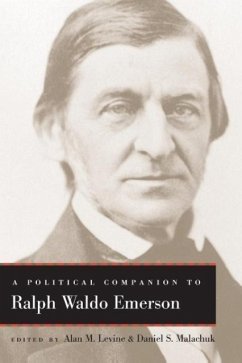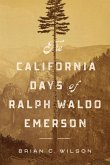From before the Civil War until his death in 1882, Ralph Waldo Emerson was renowned-and renounced-as one of the United States' most prominent abolitionists and as a leading visionary of the nation's liberal democratic future. Following his death, however, both Emerson's political activism and his political thought faded from public memory, replaced by the myth of the genteel man of letters and the detached sage of individualism. In the 1990s, scholars rediscovered Emerson's antislavery writings and began reviving his legacy as a political activist. A Political Companion to Ralph Waldo Emerson is the first collection to evaluate Emerson's political thought in light of his recently rediscovered political activism. What were Emerson's politics? A Political Companion to Ralph Waldo Emerson authoritatively answers this question with seminal essays by some of the most prominent thinkers ever to write about Emerson-Stanley Cavell, George Kateb, Judith N. Shklar, and Wilson Carey McWilliams-as well as many of today's leading Emerson scholars. With an introduction that effectively destroys the "pernicious myth about Emerson's apolitical individualism" by editors Alan M. Levine and Daniel S. Malachuk, this volume reassesses Emerson's famous theory of self-reliance in light of his antislavery politics, demonstrates the importance of transcendentalism to his politics, and explores the enduring significance of his thought for liberal democracy. Including a substantial bibliography of work on Emerson's politics over the last century, A Political Companion to Ralph Waldo Emerson is an indispensable resource for students of Emerson, American literature, and American political thought, as well as for those who wrestle with the fundamental challenges of democracy and liberalism.
Bitte wählen Sie Ihr Anliegen aus.
Rechnungen
Retourenschein anfordern
Bestellstatus
Storno








